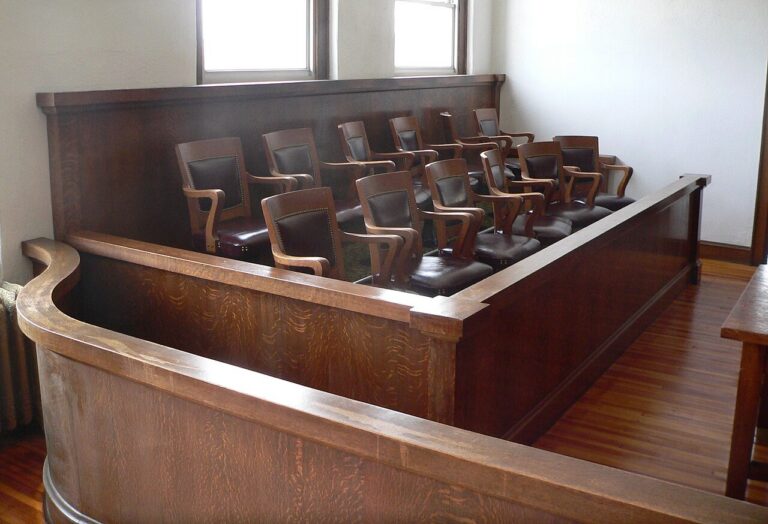Maxwell Ulin is a student at Harvard Law School.
Yesterday, Democrats on the House Committee on Health, Education, Labor, and Pensions (HELP) released a completed draft for its part of Congress’s upcoming reconciliation bill. Along with other blockbuster proposals, the Committee’s $450 billion package includes a number of provisions designed to raise federal revenues by imposing civil penalties on employers who violate federal labor laws—including the National Labor Relations Act (NLRA). As Ben, Tascha, and I wrote last month, fining NLRA violators is likely the most important element of the Protecting the Right to Organize (PRO) Act eligible for passage under the Senate’s arcane budget reconciliation rules, allowing it to avoid the Senate filibuster. With a draft text now at hand, though, it’s clear that the proposed civil penalties scheme might be even broader than originally suggested.
Drawing from the PRO Act, the proposed fining system (pp. 119-26) would apply to all existing unfair labor practices committed by employers, and would in rare cases empower the National Labor Relations Board (NLRB) to impose penalties directly on companies’ corporate officers. Fines would max out at just $50,000 per violation, with a higher $100,000 ceiling for repeat offenders who commit unlawful discharges and other infractions that cause “serious economic harm” to employees. In calculating the appropriate fines, the bill requires that the NLRB consider factors such as business size, public interest, and the gravity and past frequency of the offenses in question. However, much is left to up to discretion of the NLRB as to how to weigh and interpret these factors. It also remains unclear what constitutes an individual “violation” under the new scheme; for example, is threatening to fire ten workers at once for organizing one violation ($50,000), or ten ($500,000)? Similarly, is an action that violates two or more provisions of the NLRA at once—Sections 8(a)(1) and 8(a)(3), for example—one violation, or several? If the General Counsel’s recent memo on remedies offers any indication, it seems we should expect the Biden Board to err on the side of a more expansive reading of the penalties scheme if enacted.
But the proposal does not end there. In addition to fining employers for conduct already banned under the NLRA, the draft would empower the NLRB to fine employers for hiring permanent strike replacements, holding captive audience meetings, falsely asserting exemptions to NLRA coverage, or imposing class-action waivers—none of which today is strictly illegal under federal law. While the bill makes clear that these actions would not constitute ULPs in the traditional sense and would not entitle workers to compensatory or injunctive relief, the resulting fines could still provide a powerful deterrent against some of employers’ most destructive anti-union activities. In doing so, the Committee appears to be incorporating other critical elements of the PRO Act indirectly into the reconciliation package.
To be sure, there’s lots of opportunities for things to go wrong. As I’ve discussed before, budget reconciliation is governed in the Senate by a bizarre, six-part test known as the “Byrd Rule,” which, among other things, bans provisions whose budgetary impacts are merely “incidental” to their non-budgetary implications. What exactly this means is unclear and usually is determined by a court-like proceeding in which the Senate parliamentarian, a congressional employee, renders an advisory opinion based on past legislative precedents. While worker advocates can point to plenty of past instances where civil penalties were both expanded and created through reconciliation, it’s possible that opponents will attempt to create a distinction between penalizing conduct currently banned under the NLRA and fining actions presently left unregulated. Indeed, this may well explain why Democrats have designed the two penalty schemes separately, allowing one to survive if the other fails upon being challenged. All of this is not to mention the potential obstacles posed by moderate Democrats who could tank the bill, including three Senate Democrats who have yet to sign on to the broader PRO Act.
While much of the reconciliation process has yet to unfold, the HELP Committee’s current proposal offers good reasons to be hopeful about labor law reform. After nearly 90 years of legal assault on the right to organize, the time for such change is long overdue.










Daily News & Commentary
Start your day with our roundup of the latest labor developments. See all
February 20
An analysis of the Board's decisions since regaining a quorum; 5th Circuit dissent criticizes Wright Line, Thryv.
February 19
Union membership increases slightly; Washington farmworker bill fails to make it out of committee; and unions in Argentina are on strike protesting President Milei’s labor reform bill.
February 18
A ruling against forced labor in CO prisons; business coalition lacks standing to challenge captive audience ban; labor unions to participate in rent strike in MN
February 17
San Francisco teachers’ strike ends; EEOC releases new guidance on telework; NFL must litigate discrimination and retaliation claims.
February 16
BLS releases jobs data; ILO hosts conference on child labor.
February 15
The Office of Personnel Management directs federal agencies to terminate their collective bargaining agreements, and Indian farmworkers engage in a one-day strike to protest a trade deal with the United States.